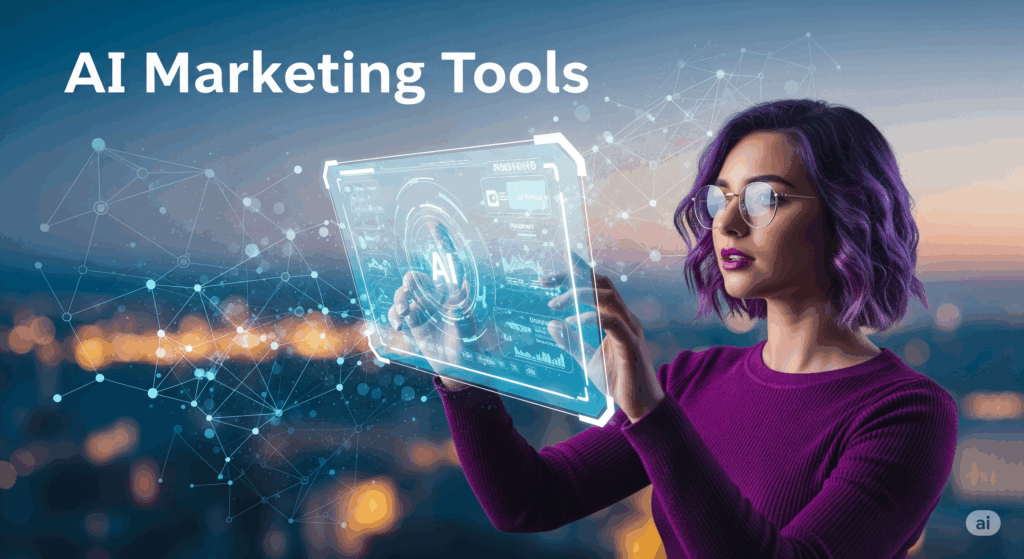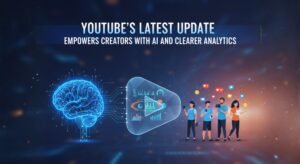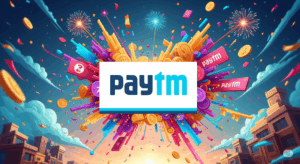In today’s fast-paced digital world, marketers are constantly looking for an edge. We’re juggling more channels, analyzing more data, and trying to personalize at a scale that felt impossible just a few years ago. Sound familiar? Well, what if I told you there’s a powerful ally that’s not just helping us keep up, but actually excelling? I’m talking about Artificial Intelligence (AI).
It’s no secret that AI in marketing has moved from a buzzword to a fundamental tool. But with so many options out there, which ones genuinely move the needle for marketing effectiveness and efficiencies? Let’s dive into the top AI tools that are truly transforming how we work, helping us connect with customers more deeply, and achieving better results.
The AI Marketing Revolution: More Than Just Hype
The promise of AI in marketing isn’t just about automation; it’s about intelligent automation. It’s about data analysis at lightning speed, personalized customer experiences at scale, and content creation that adapts to human nuances. Marketers are finding that AI tools are no longer a luxury but a necessity to stay competitive.
From understanding complex customer data to churning out creative content, AI is taking over the tedious, repetitive tasks, freeing up human marketers to focus on strategy, creativity, and relationship-building. This shift isn’t just about doing things faster; it’s about doing them smarter.
Our Top AI Tools for Marketing Effectiveness & Efficiencies
Based on real-world impact and widespread adoption, here are some categories of AI tools that have proven to be game-changers for marketing effectiveness and operational efficiency:
1. Content Creation & Optimization Platforms
This is perhaps where AI has made the most visible splash. Generative AI models have revolutionized how we produce text, images, and even video.
- AI Writing Assistants (e.g., Jasper, Copy.ai, Anyword, ChatGPT):
- Effectiveness: These tools can generate blog post outlines, full articles, social media captions, email subject lines, ad copy, and product descriptions in mere seconds. This dramatically speeds up the content production pipeline, allowing marketers to test more messages and maintain a consistent online presence across channels. They can also help brainstorm ideas and overcome writer’s block.
- Efficiencies: Imagine cutting the time it takes to draft a blog post by 50% or more! This translates directly into cost savings and increased output. While human editing is always necessary to maintain brand voice and accuracy, these tools provide an incredible starting point.
- LSI Keywords: Generative AI, content marketing, copywriting, content automation, brand voice, editorial workflow.
- AI-Powered SEO Tools (e.g., Surfer SEO, Semrush AI Toolkit, Frase.io):
- Effectiveness: These platforms go beyond basic keyword research. They analyze top-ranking content, suggest optimal content structure, identify LSI keywords, and provide real-time recommendations for on-page SEO optimization. Some can even generate entire SEO-optimized blog posts.
- Efficiencies: They automate the time-consuming process of competitive analysis and content gap analysis, allowing SEO specialists to identify high-impact topics and optimize content for better organic visibility much faster. Semrush’s AI Toolkit even helps track your brand’s presence in new AI search experiences like ChatGPT and Gemini.
- LSI Keywords: Search engine optimization, organic traffic, keyword research, content strategy, on-page SEO, ranking factors, content analysis, competitive intelligence.
2. Data Analysis & Insights Tools
Marketing today is data-driven, and AI is the engine that processes vast amounts of information to deliver actionable insights.
- Predictive Analytics & Audience Segmentation (e.g., HubSpot, Salesforce Marketing Cloud, GWI Spark, Optimove):
- Effectiveness: These sophisticated platforms leverage AI to analyze customer behavior, purchase history, and engagement patterns to predict future actions, identify high-value segments, and even forecast campaign performance. This allows for hyper-targeted campaigns and personalized customer journeys.
- Efficiencies: Instead of manual, time-consuming data crunching, AI automates the process of segmenting audiences and identifying trends. This means marketers can spend less time on spreadsheets and more time crafting strategies informed by deep, real-time insights, improving ROI significantly.
- LSI Keywords: Customer insights, market research, predictive modeling, customer segmentation, personalization, data-driven marketing, campaign optimization, customer lifetime value (CLV).
- Social Listening & Sentiment Analysis (e.g., Brandwatch, Sprout Social, Brand24):
- Effectiveness: AI-powered social listening tools monitor online conversations across social media, forums, and review sites. They can analyze sentiment (positive, negative, neutral) towards your brand, competitors, and industry trends, allowing for proactive reputation management and timely engagement.
- Efficiencies: Manually sifting through millions of social mentions is impossible. AI automates this, providing marketers with real-time alerts and summarized insights into brand perception, helping them respond quickly to crises or capitalize on emerging trends.
- LSI Keywords: Social media marketing, brand reputation, crisis management, consumer sentiment, market trends, audience insights, competitor analysis.
3. Customer Engagement & Personalization Tools
Connecting with customers on a personal level at scale is a dream AI makes a reality.
- Chatbots & Conversational AI (e.g., Tidio, Drift, ManyChat):
- Effectiveness: AI-powered chatbots provide instant, 24/7 customer support, answer FAQs, qualify leads, and guide website visitors through conversion funnels. This improves customer experience and reduces friction in the buyer’s journey.
- Efficiencies: They significantly reduce the workload on customer service teams by handling routine inquiries, allowing human agents to focus on complex issues. This leads to faster response times and higher customer satisfaction.
- LSI Keywords: Customer service automation, lead qualification, user experience, conversion funnel, instant support, live chat, customer satisfaction.
- Email Marketing & Automation Platforms (e.g., ActiveCampaign, Optimove, Seventh Sense):
- Effectiveness: AI enhances email marketing by personalizing content, optimizing send times based on individual recipient behavior, and even predicting the likelihood of engagement. This leads to higher open rates, click-through rates, and ultimately, conversions.
- Efficiencies: AI-driven automation streamlines email segmentation, campaign scheduling, and A/B testing, freeing up marketers from manual tasks and ensuring optimal campaign performance without constant human oversight.
- LSI Keywords: Email personalization, marketing automation, customer journey, lead nurturing, campaign performance, A/B testing, email deliverability.
4. Workflow Automation & Productivity
Beyond specific marketing tasks, AI is also streamlining general marketing operations.
- Workflow Automation Tools (e.g., Zapier, n8n):
- Effectiveness: While not strictly marketing-specific, these tools use AI to connect various marketing platforms and automate repetitive tasks across your tech stack. Think automatically adding new leads from a form to your CRM, or posting blog updates to social media.
- Efficiencies: The time saved by automating mundane tasks is immense. This allows marketing teams to focus their energy on creative, strategic work that truly drives value.
- LSI Keywords: Marketing operations, task automation, digital workflow, system integration, productivity tools, repetitive tasks.
The Human Touch: Still Essential
While these top AI tools offer incredible power, it’s crucial to remember that AI in marketing is a co-pilot, not a replacement. The most effective strategies combine AI’s analytical prowess and efficiency with human creativity, intuition, and empathy. The human marketer defines the strategy, provides the creative spark, understands the nuances of the brand voice, and builds genuine relationships. AI handles the heavy lifting, the data crunching, and the scale.
By thoughtfully integrating these powerful AI tools into your marketing efforts, you’re not just preparing for the future; you’re building a more effective, efficient, and ultimately more impactful marketing machine today. It’s an exciting time to be a marketer, isn’t it? Embrace the intelligent assistants, and watch your marketing effectiveness soar!







